 Beatriz Ferreyra, former pupil of Gorgy Ligeti, is an experimental music composer with many distinguished accolades. An academic who has published notable papers, she now works as a free composer taking commissions for concerts, festivals, ballets, and films. On Echos+, we hear her in peak form crafting intriguing and unique experiments in vocal manipulation. She uses the voice as base material for stereo-shifting computer music creations that arrest and delight.
Beatriz Ferreyra, former pupil of Gorgy Ligeti, is an experimental music composer with many distinguished accolades. An academic who has published notable papers, she now works as a free composer taking commissions for concerts, festivals, ballets, and films. On Echos+, we hear her in peak form crafting intriguing and unique experiments in vocal manipulation. She uses the voice as base material for stereo-shifting computer music creations that arrest and delight.
Hotter than July. This week's episode has plenty of fresh new music by Marie Davidson, Kim Gordon, Mabe Fratti, Guided By Voices, Holy Tongue meets Shackleton, Softcult, Terence Fixmer, Alan Licht, pigbaby, and Eiko Ishibashi, plus some vault goodies from Bombay S Jayashri and Pete Namlook & Richie Hawtin. Solstice moon in West Midlands, UK photo by James. Get involved: subscribe, review, rate, share with your friends, send images! |


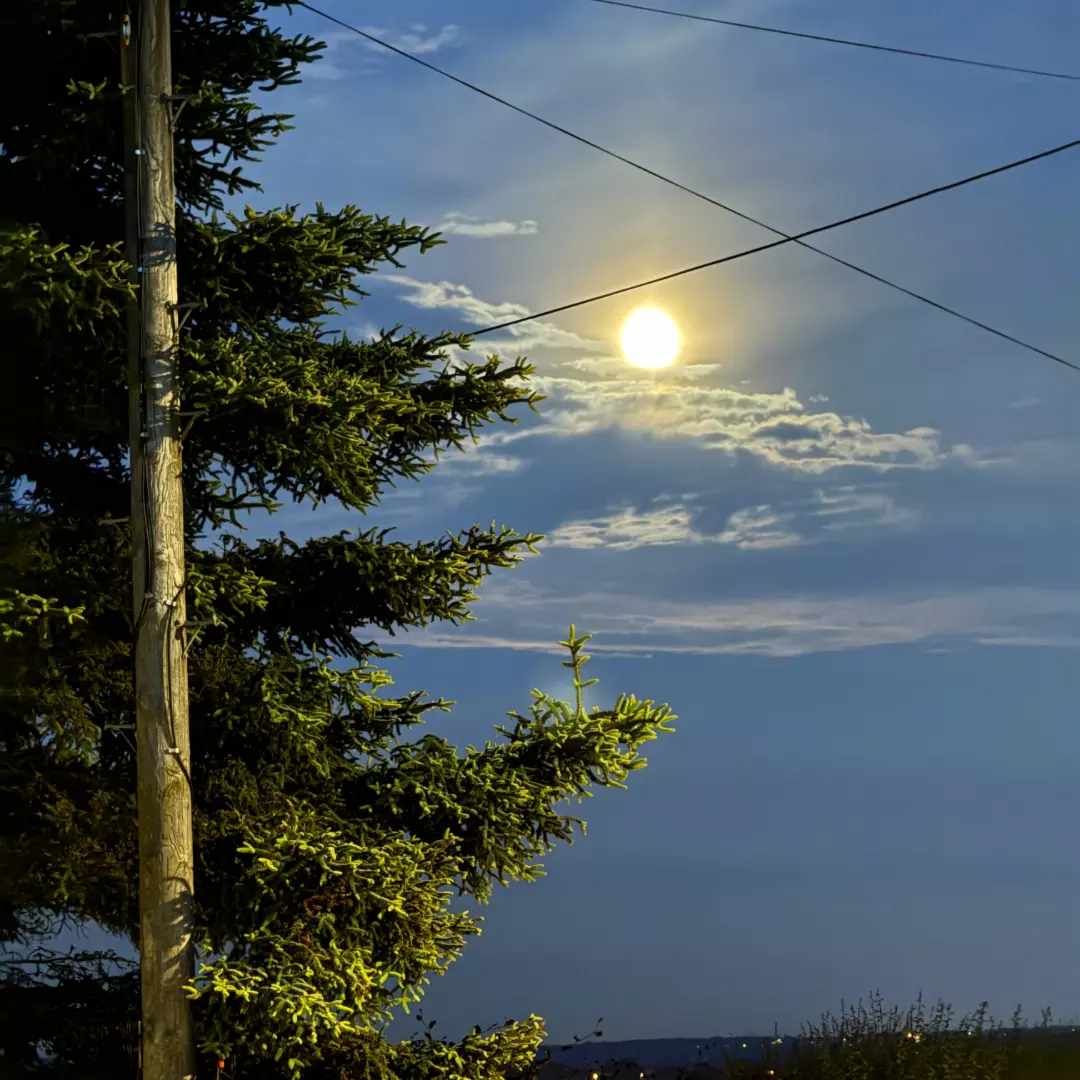
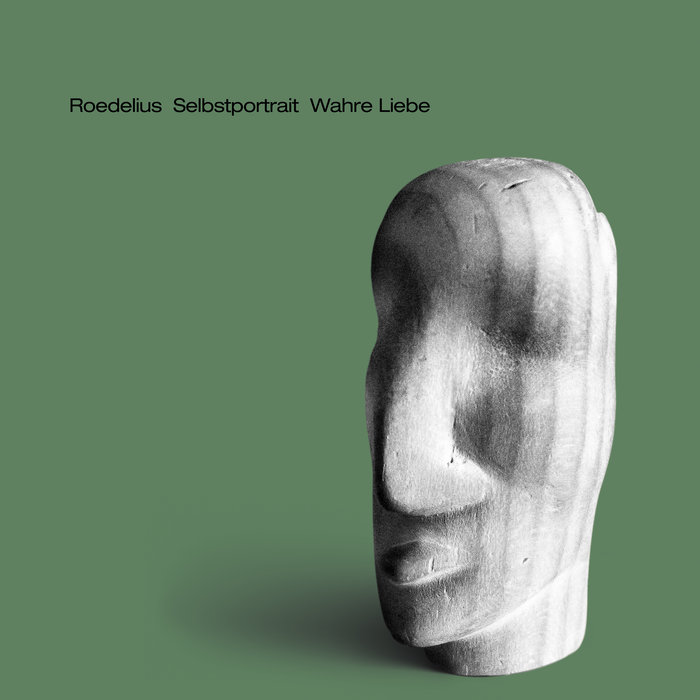 Hans-Joachim Roedelius is better known for his work as a founding member of the bands Cluster and Harmonia, both household names for fans of 1970s krautrock. This solo album, Selbstportrait Wahre Liebe, feels like a more clinical approach to krautrock, with all of the difference and repetition and none of the bombast. Filled with stately electronic keyboards and synthesizers, this minimalist document has the hair-raising effect of a calm, deliberate tea ceremony.
Hans-Joachim Roedelius is better known for his work as a founding member of the bands Cluster and Harmonia, both household names for fans of 1970s krautrock. This solo album, Selbstportrait Wahre Liebe, feels like a more clinical approach to krautrock, with all of the difference and repetition and none of the bombast. Filled with stately electronic keyboards and synthesizers, this minimalist document has the hair-raising effect of a calm, deliberate tea ceremony. The start of the album made me think of what my grandmother would have said: "What is this twaddle?" and "Is this what you call music?" White is foremost a drummer, first founding Dirty Three with Warren Ellis and Mick Turner, and with bands as varied as Cat Power, PJ Harvey, and The Blackeyed Susans. Conversely, Marisa Anderson is a classically trained master of melancholic guitar rooted in American folk, neo-classical and African guitar styles, with an early foundation in country, jazz and even circus bands. With musicians as these at the helm, this becomes perfect jam music; not jam as in "jam band" or Grateful Dead, but a rich psychedelic tapestry woven by practiced hands that take pleasure in breaking the rules of jazz foundations and serve to transport the listener to new heights.
The start of the album made me think of what my grandmother would have said: "What is this twaddle?" and "Is this what you call music?" White is foremost a drummer, first founding Dirty Three with Warren Ellis and Mick Turner, and with bands as varied as Cat Power, PJ Harvey, and The Blackeyed Susans. Conversely, Marisa Anderson is a classically trained master of melancholic guitar rooted in American folk, neo-classical and African guitar styles, with an early foundation in country, jazz and even circus bands. With musicians as these at the helm, this becomes perfect jam music; not jam as in "jam band" or Grateful Dead, but a rich psychedelic tapestry woven by practiced hands that take pleasure in breaking the rules of jazz foundations and serve to transport the listener to new heights.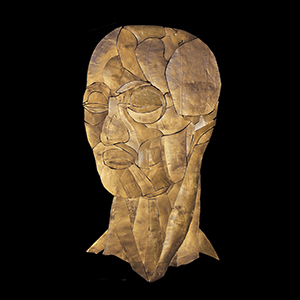 Euzebio is Robert Piotrowicz's first record of solely modular synthesis after a period of working within different contexts. The recent
Euzebio is Robert Piotrowicz's first record of solely modular synthesis after a period of working within different contexts. The recent 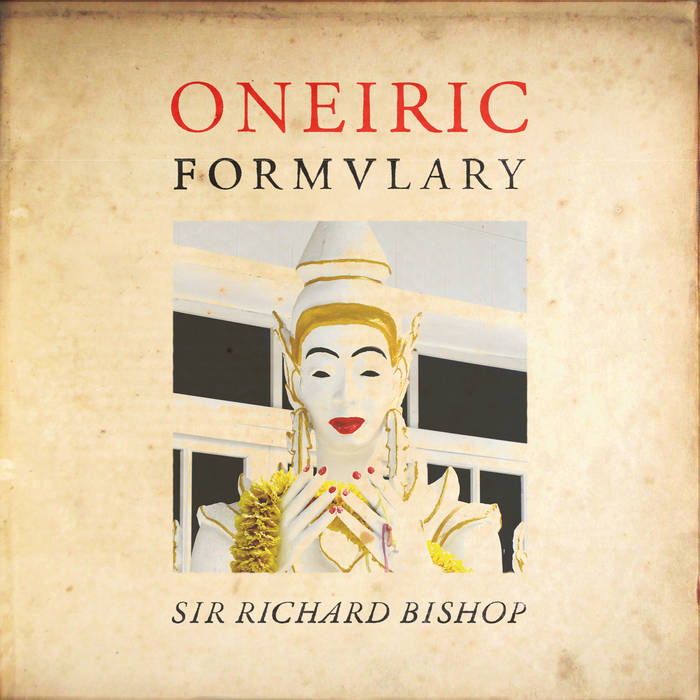 Oud, Lute, acoustic guitar, or lap steel guitar? While my musical knowledge is varied, my ear is not trained to pick out the many instruments used or mimicked by Bishop. He makes guitars sound like any of these aforementioned instruments, at any point in time, with practiced fingers and the equivalent musical knowledge of a library with every note he plays, a master guitarist proficient in a variety of guitar techniques and knowledge of music traditions. His latest album excels in his freer use of experimentation with theme and electronics, crafting a "dream pharmacy" as the title implies.
Oud, Lute, acoustic guitar, or lap steel guitar? While my musical knowledge is varied, my ear is not trained to pick out the many instruments used or mimicked by Bishop. He makes guitars sound like any of these aforementioned instruments, at any point in time, with practiced fingers and the equivalent musical knowledge of a library with every note he plays, a master guitarist proficient in a variety of guitar techniques and knowledge of music traditions. His latest album excels in his freer use of experimentation with theme and electronics, crafting a "dream pharmacy" as the title implies. Creating memorable music is not always about throwing musical spaghetti at the wall to see what sticks; like any recipe, there are common ingredients to music’s magic—tempo, chorus and yes, a certain predictability—and the best dishes come from the extrapolation of the cook’s own prime ingredients into their own musical concoctions. Having a formula is no more dangerous to "real" music as a recipe is to a "real" chef; the best music in the hands of masters balances an adherence to these rules with free-flowing creativity, while those less experienced either know nothing about the recipe, or follow the recipe too strictly. Boston based trio E comprises all masters: guitarist Thalia Zedek (Come, Uzi, Live Skull), guitarist and inventor Jason Sidney Sanford (Neptune) and drummer Gavin McCarthy (Karate). Their third release doesn’t create any new formulas, but rather expounds on the tasty blend of the prior two releases, honing the skills of three masters into an even finer dish of practiced and precise dark energy.
Creating memorable music is not always about throwing musical spaghetti at the wall to see what sticks; like any recipe, there are common ingredients to music’s magic—tempo, chorus and yes, a certain predictability—and the best dishes come from the extrapolation of the cook’s own prime ingredients into their own musical concoctions. Having a formula is no more dangerous to "real" music as a recipe is to a "real" chef; the best music in the hands of masters balances an adherence to these rules with free-flowing creativity, while those less experienced either know nothing about the recipe, or follow the recipe too strictly. Boston based trio E comprises all masters: guitarist Thalia Zedek (Come, Uzi, Live Skull), guitarist and inventor Jason Sidney Sanford (Neptune) and drummer Gavin McCarthy (Karate). Their third release doesn’t create any new formulas, but rather expounds on the tasty blend of the prior two releases, honing the skills of three masters into an even finer dish of practiced and precise dark energy.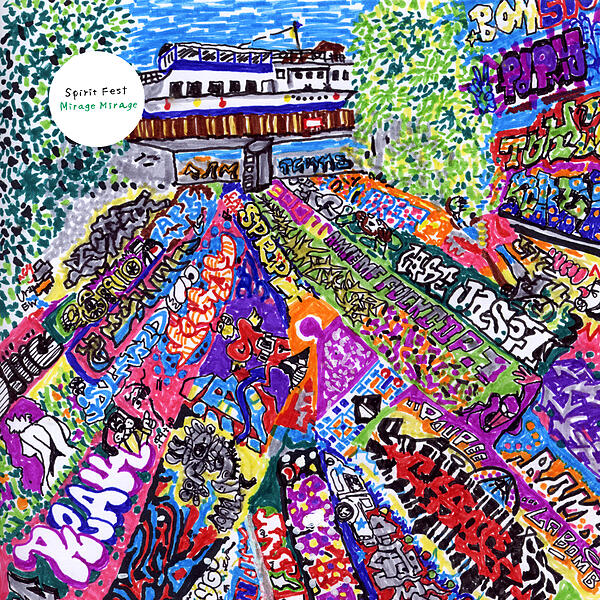 Spirit Fest is a supergroup built around acclaimed Japanese duo Tenniscoats, featuring members of Notwist, Jam Money, and Joasihno. If an album could be adorkable, this fits the bill. Mirage Mirage is an album for flower picking and bubble blowing, and it charmed me from the first listen.
Spirit Fest is a supergroup built around acclaimed Japanese duo Tenniscoats, featuring members of Notwist, Jam Money, and Joasihno. If an album could be adorkable, this fits the bill. Mirage Mirage is an album for flower picking and bubble blowing, and it charmed me from the first listen.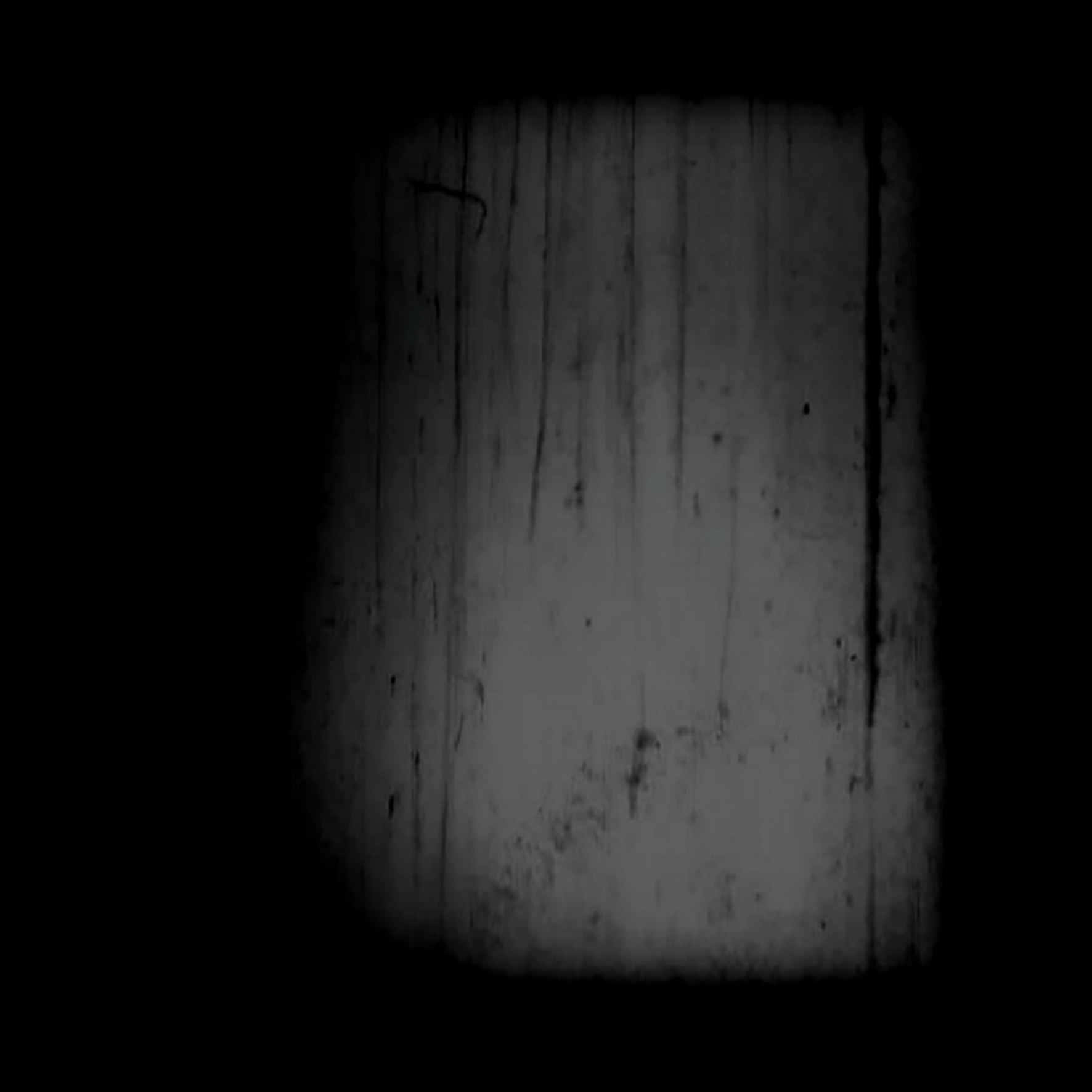 I know very little about Nicole Oberle and I suspect that suits her just fine, as she self-describes as a "digital recluse." What I do know is that she is based in Texas and that she has recorded quite a prolific stream of self-released material over the last year or so. One of those releases was last fall's Skin EP, which has since been picked up and reissued in expanded form by Whited Sepulchre. That is great news for a couple of reasons, as I would not have encountered her work otherwise and this new incarnation of Skin is a significantly more substantial and compelling release than its predecessor. In fact, the newly added songs are some of my favorite ones on the album. As such, I suspect this incarnation of Skin will rightfully go a long way towards expanding Oberle's fanbase, as there are appealing shades of both Grouper and erstwhile labelmate Midwife lurking among these eleven songs. The most fascinating parts of the album, however, are the ones where those influences collide with Oberle's divergent interests in ghostly, downtempo R&B grooves and unsettling, diaristic sound collages.
I know very little about Nicole Oberle and I suspect that suits her just fine, as she self-describes as a "digital recluse." What I do know is that she is based in Texas and that she has recorded quite a prolific stream of self-released material over the last year or so. One of those releases was last fall's Skin EP, which has since been picked up and reissued in expanded form by Whited Sepulchre. That is great news for a couple of reasons, as I would not have encountered her work otherwise and this new incarnation of Skin is a significantly more substantial and compelling release than its predecessor. In fact, the newly added songs are some of my favorite ones on the album. As such, I suspect this incarnation of Skin will rightfully go a long way towards expanding Oberle's fanbase, as there are appealing shades of both Grouper and erstwhile labelmate Midwife lurking among these eleven songs. The most fascinating parts of the album, however, are the ones where those influences collide with Oberle's divergent interests in ghostly, downtempo R&B grooves and unsettling, diaristic sound collages. Louise Bock is the latest guise of iconoclastic composer Taralie Peterson, who is best known for her role in psych-folk luminaries Spires That in the Sunset Rise. It is probably fair to describe some of her previous work as "polarizing" or "an acquired taste," as she is not one to shy away from dissonance or nerve-jangling intensity. However, it is also fair to say that she has recorded some truly transcendent and impressively wild pieces over the years. In some ways, Abyss: For Cello captures Peterson in comparatively accessible form, but that is mostly because there are limits to how much infernal cacophony one person can create with just a cello and a saxophone. That said, that limit is considerably higher than I would have expected, as Abyss is quite a churning and heaving one-woman tour de force of cello-driven violence. Moreover, it is quite an impressively focused and tightly edited one as well. It is quite a pleasure to witness Peterson's power so beautifully harnessed for maximum impact, particularly on the album's brilliant centerpiece "Oolite."
Louise Bock is the latest guise of iconoclastic composer Taralie Peterson, who is best known for her role in psych-folk luminaries Spires That in the Sunset Rise. It is probably fair to describe some of her previous work as "polarizing" or "an acquired taste," as she is not one to shy away from dissonance or nerve-jangling intensity. However, it is also fair to say that she has recorded some truly transcendent and impressively wild pieces over the years. In some ways, Abyss: For Cello captures Peterson in comparatively accessible form, but that is mostly because there are limits to how much infernal cacophony one person can create with just a cello and a saxophone. That said, that limit is considerably higher than I would have expected, as Abyss is quite a churning and heaving one-woman tour de force of cello-driven violence. Moreover, it is quite an impressively focused and tightly edited one as well. It is quite a pleasure to witness Peterson's power so beautifully harnessed for maximum impact, particularly on the album's brilliant centerpiece "Oolite."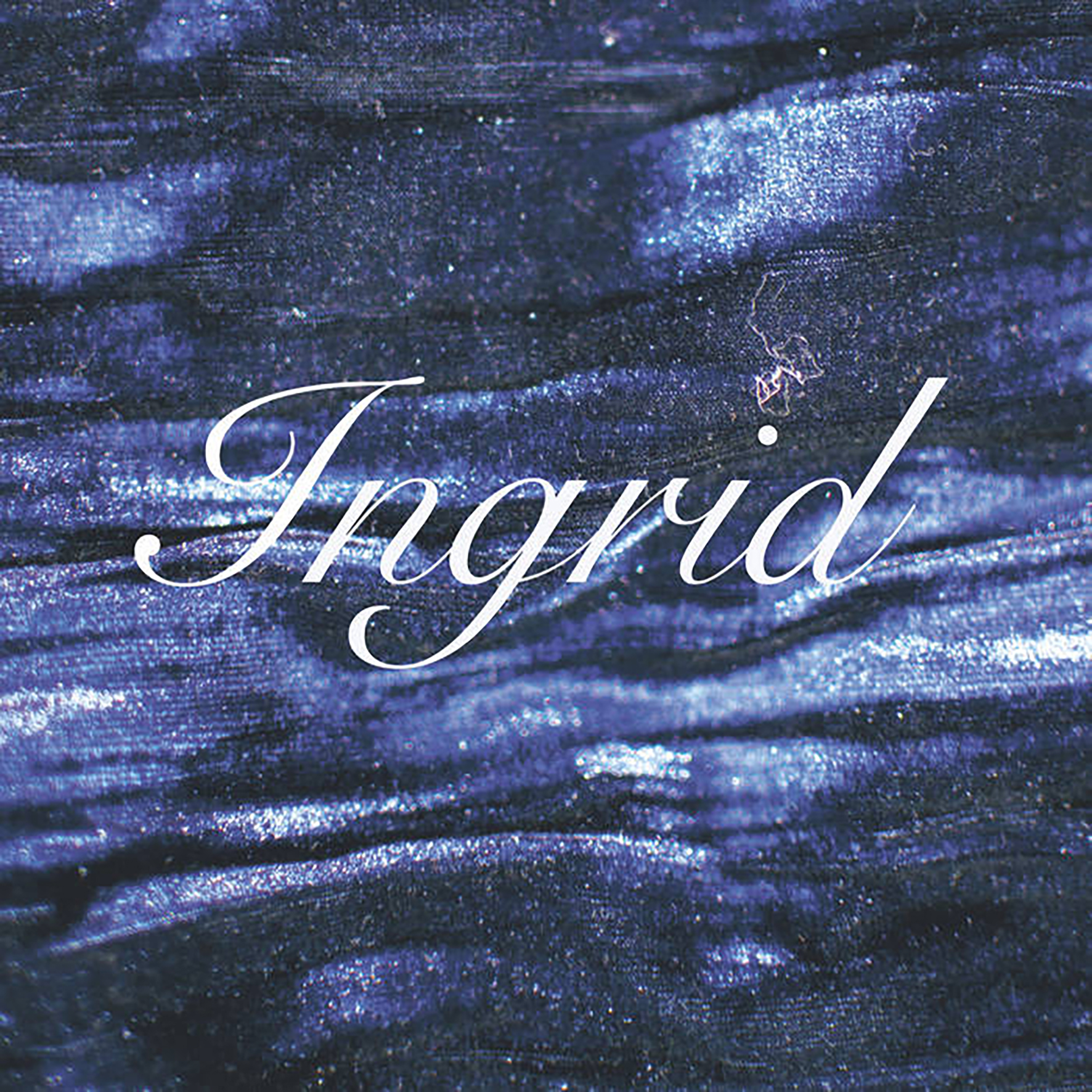 I was quite curious to see which direction Klara Lewis's latest album would take, as her previous solo releases were generally quite radical and hyper-constrained in their avoidance of anything resembling conventional instrumentation. While both Ett and Too are aptly described by Editions Mego as "eerie rhythmic variations," such a summary falls short in conveying the uniqueness of Lewis's vision, as it often felt like she was quixotically attempting to compose pop songs solely from murky field recordings and decontextualized fragments of beats and melodies. With Ingrid, however, Lewis makes a dramatic and unexpected aesthetic reversal, as she slowly transforms a haunting and melodic cello loop into a wonderfully gnarled and heaving longform piece.
I was quite curious to see which direction Klara Lewis's latest album would take, as her previous solo releases were generally quite radical and hyper-constrained in their avoidance of anything resembling conventional instrumentation. While both Ett and Too are aptly described by Editions Mego as "eerie rhythmic variations," such a summary falls short in conveying the uniqueness of Lewis's vision, as it often felt like she was quixotically attempting to compose pop songs solely from murky field recordings and decontextualized fragments of beats and melodies. With Ingrid, however, Lewis makes a dramatic and unexpected aesthetic reversal, as she slowly transforms a haunting and melodic cello loop into a wonderfully gnarled and heaving longform piece.
